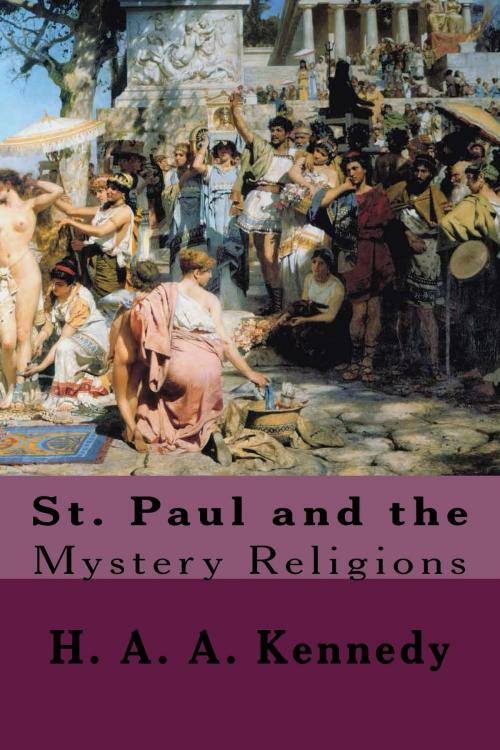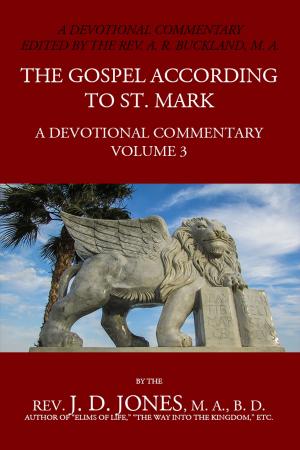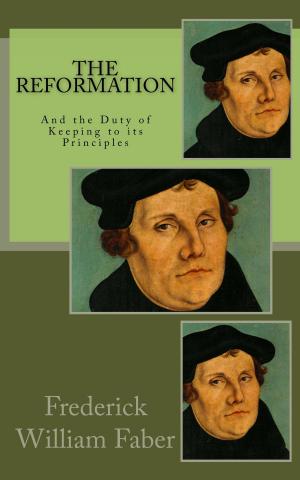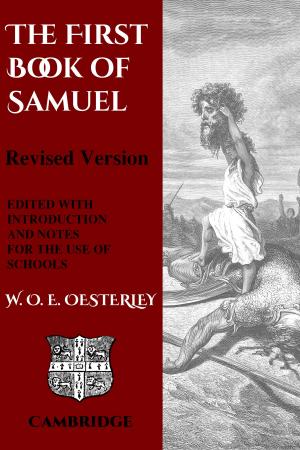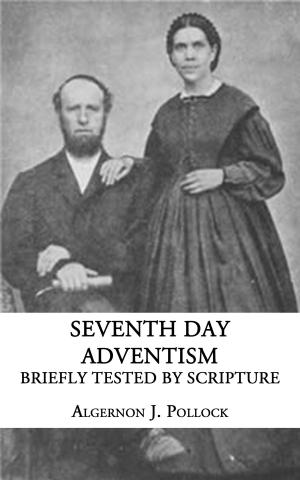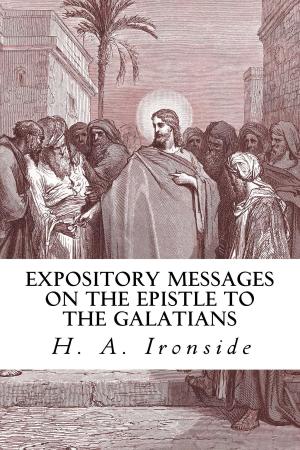St. Paul and the Mystery Religions
Nonfiction, Religion & Spirituality, Christianity, Christian Literature| Author: | H. A. A. Kennedy | ISBN: | 1230001944471 |
| Publisher: | CrossReach Publications | Publication: | September 30, 2017 |
| Imprint: | Language: | English |
| Author: | H. A. A. Kennedy |
| ISBN: | 1230001944471 |
| Publisher: | CrossReach Publications |
| Publication: | September 30, 2017 |
| Imprint: | |
| Language: | English |
IT is scarcely necessary to apologise for a discussion of St. Paul’s relation to the Mystery-Religions of his Hellenistic environment. One of the most noteworthy features in the trend of contemporary scholarship is the interest manifested by philological experts in the phenomena of that extraordinary religious syncretism which prevailed in the Græco-Roman world between 300 B.C. and 300 A.D. Their learned and instructive investigations touch nascent Christianity at numerous points, and raise many fascinating questions. Obscure places in early Christian literature are being illuminated, and the New Testament itself has much to gain from the historical reconstruction of the habits of thought and beliefs in the midst of which it came into being. The natural tendency, however, of explorers in remote fields is to over-estimate the significance of their discoveries. This temptation, I believe, has not been escaped by the pioneer workers in the province of Hellenistic religion. And their readiness to look in that direction for the source of various important Christian conceptions has been encouraged by the ardour of those theologians who find in the comparison of religions the main clue to the interpretation of Christianity.
As a matter of fact, the chief defect in the process is the failure to be sufficiently rigorous in the application of the historical method. The more immediate background of the Christian faith is apt to be strangely neglected. It will appear again and again in the course of the present investigation that the Old Testament supplies a perfectly adequate explanation of ideas and usages in the Epistles of Paul which it is the fashion to associate with Hellenistic influence. Perhaps Deissmann may be charged with over-statement when he declares that “if we are to understand the complete Paul from the view-point of the history of religion, we must grasp the spirit of the Septuagint” (Paulus, p. 70). But one has no doubt whatever that this assertion sets in bold relief an aspect of the situation which is too frequently ignored.
To dismiss the view that the Christianity of Paul is a syncretistic religion is not, however, to close one’s eyes to the light which may be shed from many quarters on the conditions in which he accomplished his work as a missionary. And if we are to do full justice to his own famous statement, “I have become all things to all men that at all events I might save some,” we must recognise his willingness to put himself en rapport with the men and women whom he sought to win for Christ. Hence it is of real value to understand something of the religious atmosphere in which his converts had lived as Pagans, if we are to grasp the more delicate implications both of his thought and language in those Letters which answered their questions and dealt with their spiritual dangers.
I have not hesitated to fill in somewhat elaborately the religious background of those communities to which Paul proclaimed the Gospel of Jesus Christ. Otherwise, the full significance of the Mystery-Religions could scarcely be appreciated. And I felt that unless the character and influence of these cults themselves were clearly outlined so far as the data permitted, it would be useless to discuss the Apostle’s relation to them. Perhaps at first sight the sketch of Jewish mystical phenomena in Chapter II. may appear superfluous. But it seemed necessary to indicate forces in the religious history of Judaism sufficient to account for elements in Paul’s experience which could not easily be referred to the crisis in his spiritual life and required no explanation from his Hellenistic environment.
IT is scarcely necessary to apologise for a discussion of St. Paul’s relation to the Mystery-Religions of his Hellenistic environment. One of the most noteworthy features in the trend of contemporary scholarship is the interest manifested by philological experts in the phenomena of that extraordinary religious syncretism which prevailed in the Græco-Roman world between 300 B.C. and 300 A.D. Their learned and instructive investigations touch nascent Christianity at numerous points, and raise many fascinating questions. Obscure places in early Christian literature are being illuminated, and the New Testament itself has much to gain from the historical reconstruction of the habits of thought and beliefs in the midst of which it came into being. The natural tendency, however, of explorers in remote fields is to over-estimate the significance of their discoveries. This temptation, I believe, has not been escaped by the pioneer workers in the province of Hellenistic religion. And their readiness to look in that direction for the source of various important Christian conceptions has been encouraged by the ardour of those theologians who find in the comparison of religions the main clue to the interpretation of Christianity.
As a matter of fact, the chief defect in the process is the failure to be sufficiently rigorous in the application of the historical method. The more immediate background of the Christian faith is apt to be strangely neglected. It will appear again and again in the course of the present investigation that the Old Testament supplies a perfectly adequate explanation of ideas and usages in the Epistles of Paul which it is the fashion to associate with Hellenistic influence. Perhaps Deissmann may be charged with over-statement when he declares that “if we are to understand the complete Paul from the view-point of the history of religion, we must grasp the spirit of the Septuagint” (Paulus, p. 70). But one has no doubt whatever that this assertion sets in bold relief an aspect of the situation which is too frequently ignored.
To dismiss the view that the Christianity of Paul is a syncretistic religion is not, however, to close one’s eyes to the light which may be shed from many quarters on the conditions in which he accomplished his work as a missionary. And if we are to do full justice to his own famous statement, “I have become all things to all men that at all events I might save some,” we must recognise his willingness to put himself en rapport with the men and women whom he sought to win for Christ. Hence it is of real value to understand something of the religious atmosphere in which his converts had lived as Pagans, if we are to grasp the more delicate implications both of his thought and language in those Letters which answered their questions and dealt with their spiritual dangers.
I have not hesitated to fill in somewhat elaborately the religious background of those communities to which Paul proclaimed the Gospel of Jesus Christ. Otherwise, the full significance of the Mystery-Religions could scarcely be appreciated. And I felt that unless the character and influence of these cults themselves were clearly outlined so far as the data permitted, it would be useless to discuss the Apostle’s relation to them. Perhaps at first sight the sketch of Jewish mystical phenomena in Chapter II. may appear superfluous. But it seemed necessary to indicate forces in the religious history of Judaism sufficient to account for elements in Paul’s experience which could not easily be referred to the crisis in his spiritual life and required no explanation from his Hellenistic environment.
